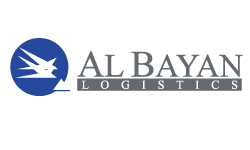INCOTERMS 2020
INCOTERMS 2020
In summary, Incoterms 2020 is a set of international trade rules that regulate the rights and obligations of parties in a foreign trade contract regarding the delivery of goods from the seller to the buyer. The Incoterms 2020 contains 11 rules which are abbreviations of three-letter Latin terms that describe the point in time when the rights of ownership and responsibility for the goods transfer, as well as who is responsible for paying for the freight, transportation, and terminal costs, as well as customs duties. The most commonly used Incoterms are EXW, FOB, FCA, CPT, CIP, DAT, DAP, DDP.
EXW — the buyer takes the goods from the seller at the place of manufacture (at the seller’s warehouse), this is called "self-delivery". The buyer bears the costs of: loading, customs clearance, export, shipping, customs clearance, import, insurance.
FCA — the seller must carry out customs clearance of the goods for export and load them into the transport provided by the buyer. The buyer is obliged through the carrier to issue to the seller a document on the shipment of goods for VAT refund.
FAS — the seller must carry out customs clearance of the goods for export, deliver the goods to the berth and place it opposite the specified vessel. The buyer accepts the goods and loads them.
FOB — the seller must carry out customs clearance of the goods for export and place them on the ship, after which the responsibility passes to the buyer.
CFR — the seller must carry out customs clearance of the goods for export, place it on the vessel and deliver it to the port of destination. Once the goods have been placed on the ship, the responsibility passes to the buyer. The buyer is responsible for cargo insurance.
CIF — as a CFR seller must carry out customs clearance of goods for export loading and shipping. The difference from CFR is the insurance of the goods by the seller.
SPT — the seller must carry out customs clearance of the goods for export, loading and transportation of goods. After loading onto the transport of the carrier, the responsibility passes to the buyer, although the delivery is paid by the seller. The seller is not required to conclude an insurance contract.
SIP — the seller must carry out customs clearance of the goods for export, loading, transportation and unloading, after which the responsibility passes to the buyer. Cargo insurance is provided by the seller.
DPU — the seller must carry out customs clearance of the goods for export, transport and unload the goods at the terminal specified by the buyer, after which the responsibility for the goods passes to the buyer. Goods insurance is not the responsibility of the seller.
DAP — the seller must carry out customs clearance of the goods for export, transport them and provide the buyer for unloading, after which the responsibility for the goods passes to the buyer. The insurance of the goods is not the responsibility of the seller.
DDP — the seller must carry out customs clearance of the goods for export and deliver it to the place indicated by the buyer, unload and carry out import clearance (customs clearance). Cargo insurance is not the responsibility of the seller.


